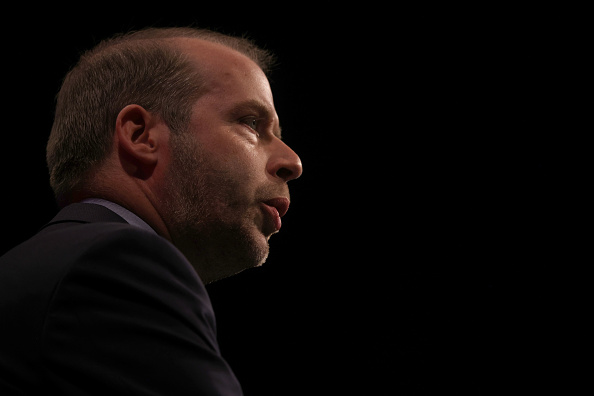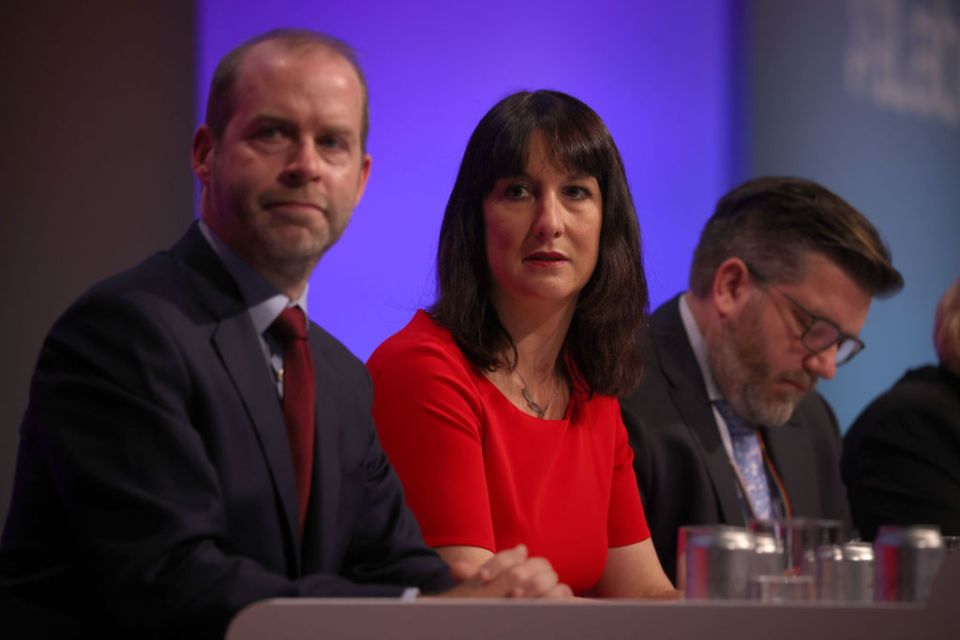Labour conference: Reynolds prepares to unveil his big pitch to businesses

The Labour party is an unfamiliar position heading into next week’s party conference. Labour has had consistently strong poll leads this year, is presenting a unified front on policy and for once has not been the party subject to a summer of internecine factional recriminations.
Sir Keir Starmer now has a chance to drive home his party’s advantage over the Tories during the one week when His Majesty’s Opposition commands wall-to-wall media attention. Shadow business secretary Jonathan Reynolds – known around Westminster simply as “Jonny” – told City A.M. that Labour’s current position was already “quite remarkable”, considering the historically awful 2019 election defeat.
“I think first of all Keir, while he wouldn’t ask for it, deserves some credit for the job he has done,” Reynolds said.
“I think he has achieved that status of a Prime Minister-in-waiting more than any opposition leader we’ve had in the last 12 years. I think people shouldn’t criticise someone who is delivering the goods.”
A part of Labour’s resurgence – along with the endless Tory psychodramas and the cost of living crisis – has been the party’s ability to slowly build trust with the public on the economy. Several recent polls have shown the electorate think Labour would be better economic managers than the Conservatives – a near unthinkable prospect for much of the past 12 years.
Starmer and shadow chancellor Rachel Reeves have said the phrase “fiscal responsibility” on loop and have scrubbed the barnacles of Corbynism off the boat. But now as we approach closer to the next election, Labour is firming up its policy offering beyond vague promises to run an aspirational centre-left government.
“We are explicitly saying not just that we want a good relationship with business, but that we see it as integral to the kind of government we want to be. I’ll be quite candid – I dont’ think that was the message that came across in the last few Labour manifestos,” Reynolds said

“I think the fundamental difference is that we’ve been able to articulate for the last 18 months that we’re not building this relationship with business because it’s cosmetic or messaging or we would like to be more competitive – it’s a genuine understanding from us so we can hit our objectives.”
This muscular show of pro-business social democracy is hardly surprising from a minister that would have sat very comfortably in the Blairite camp during the New Labour years. Reynolds was known as an affable and empathetic figure in City boardrooms when he was shadow Treasury minister, despite having to sell many radical Jeremy Corbyn policies which he doubtlessly opposed.
He will now play a key part in forming his party’s economic offer by launching a long-term industrial strategy on Monday. The paper will set out how a Labour government would boost the UK’s poor business investment and productivity – two major long-term drags on the country’s economic prospects.
“To have the lowest economic growth, the lowest productivity and the lowest business investment in the G7 – I would say those things are linked,” Reynolds said.
“It’s about having a long-term framework, consistent policy, reform of some of the barriers in the tax system and incentives for the kinds of investment we want – I honestly feel this is what businesses need and want and that’s what they have in other countries.”
Some of the key pillars of Labour’s plan are a major overhaul of business rates and a pledge to invest £28bn a year into green energy in a bid to create new domestic manufacturing markets. There will also be tax incentives for firms that invest in property, plant and equipment – a key lever being used by the current government.
The shadow business secretary said he was very interested in having a conversation around whether to keep the government’s super deduction, which allows companies to cut their tax bill by up to 25p for every £1 they invest, for the long-term.
“I’m unashamedly saying I want even people on the centre-right to say ‘yes these are the challenges, this is the area’,” he said.
“Anything that is working well and doing a good job I want to keep.”
However, it has become increasingly obvious there will be far fewer policy overlaps under Prime Minister Liz Truss than under the quasi-social democrat Boris Johnson. Truss’ government is about to unveil the largest package of tax cuts since 1988 and she is clearly committed to radical Thatcherite changes.
It is a policy offering that will provide a far more interesting and lively ideological debate between Labour and the Tories in the two years leading up to the election.
“If they are saying they are going to increase spending, cut taxes and somehow that magically it is all going to be okay …I think that is something we should all worry about, because I can’t see it working,” Reynolds said.
“The analysis is shared by the political parties [about the economic challenges]. But for us it’s about long-term, modern industrial strategy.”
“It’s just true to say there are countries with significantly higher Corporation Tax rates than us, that have higher levels of business investment.
Reynolds and co will be desperately hoping the great British public agrees.